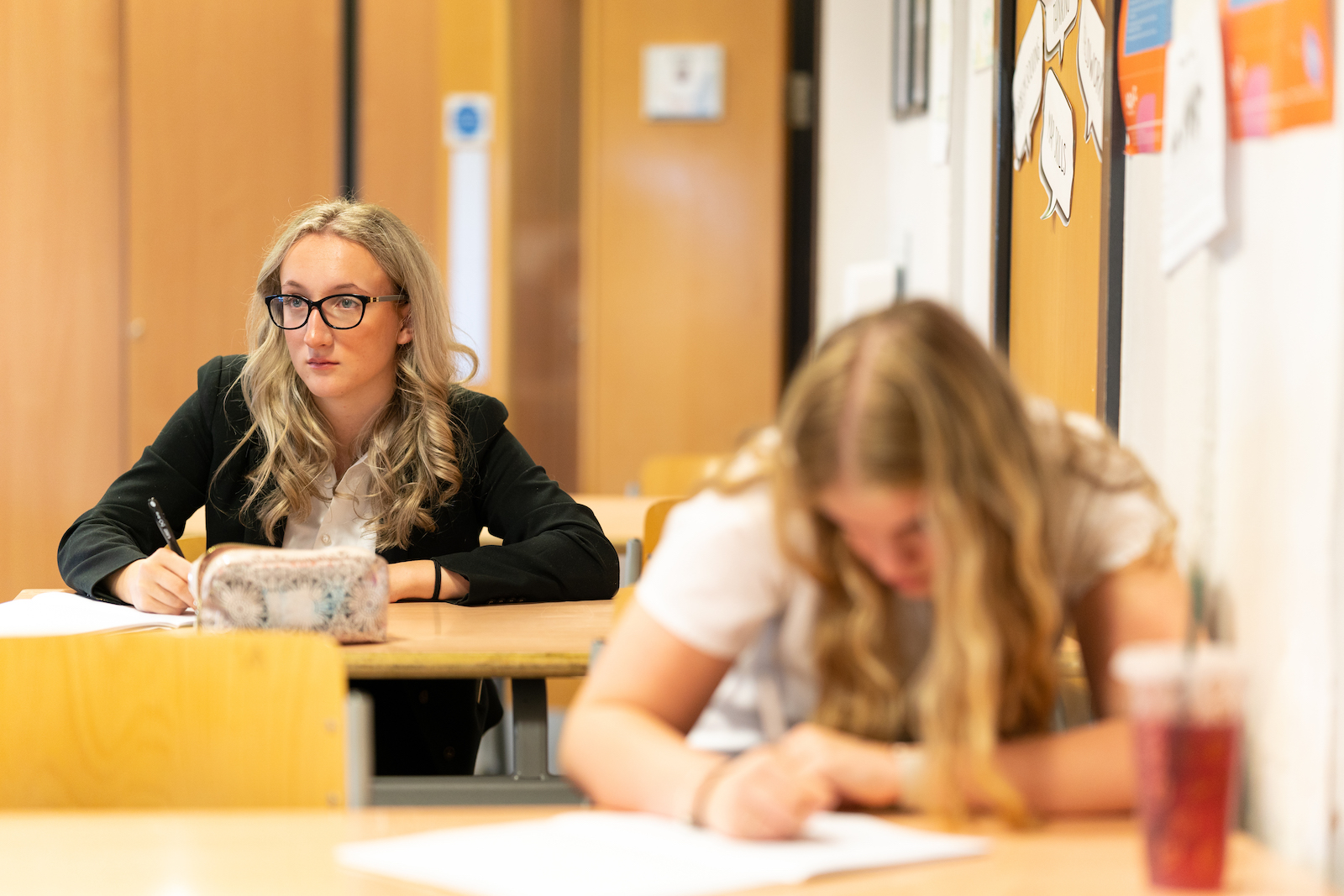History - A Level

Course outline – OCR A Level History A (H505)
Paper 1: British period study and enquiry – England 1547-1603: Later Tudors (Unit Y107)
| Marks | Duration | Weighting |
| 50 | 1 hour 30 mins | 25% |
Question 1: Four sources given – assess how far they support a particular view (30 marks)
Question 2: Choose one of two essay questions (20 marks)
Mid-Tudor Crisis
- Edward VI: issues of minority monarchy, radical Protestant change, the Kett and Western Rebellions, Lady Jane Grey and the Devise for the Succession.
- Mary I: the Spanish marriage, Wyatt’s Rebellion, Catholic restoration and the burnings of Protestants, issues of female monarchy.
Elizabethan England
- Religious Settlement: Acts of Supremacy and Uniformity, disagreements from Puritans and Catholics, role of Archbishops, the Catholic threat (including plots of Mary Queen of Scots).
- Elizabethan government: managing parliament, the Privy Council and factions.
- The importance of key figures: Leicester, Burghley, Walsingham, Norfolk.
- Relations with France, Scotland, Spain and the Netherlands.
- Issues of female monarchy – marriage prospects, naming an heir.
- Elizabethan economy and overseas trade.
- Elizabethan social policy, including the Poor Laws.
- Later years of the reign – Essex Rebellion, royal prerogative.
Paper 2: Non-British period study – The Cold War in Europe 1941-1995 (Unit Y223)
| Marks | Duration | Weighting |
| 30 | 1 hour | 15% |
Choose from two sets of questions. Either 1a AND 1b or 2a AND 2b
Question (a): Which of the following (two options given to assess the impact of (10 marks)
Question (b): Essay question (20 marks)
Origins of the Cold War
- Tensions in the Grand Alliance: conferences – Yalta, Potsdam, Tehran; personal relations between Stalin, Churchill and Roosevelt.
- Capitalism vs Communism.
Development of the Cold War (1946-1955)
- Soviet control of Eastern Europe.
- American intervention – Truman Doctrine and Marshall Aid.
- Conflicts over Germany – Berlin blockade and airlift, East and West Germany.
- NATO and Warsaw Pact.
The Cold War (1956-1984)
- Crises in Europe – impact of Hungarian Rising, Czech Crisis, events in Poland.
- Developments in Germany – Berlin Wall, inclusion in NATO.
- Rivalries – Arms race; Space Race.
- Negotiations – SALT Talks, Détente.
The End of the Cold War (1984-1995)
- Social and economic problems in USSR.
- Gorbachev – glasnost; perestroika.
- Afghanistan
- Reunification of Germany
Paper 3: Thematic study and historical interpretations – Civil Rights in the USA 1865-1992 (Unit Y319)
| Marks | Duration | Weighting |
| 80 | 2 hours 30 mins | 40% |
Question 1: Evaluate two interpretations and decide which is the most convincing (30 marks)
Question 2: Three possible questions, choose two (25 marks)
African Americans
- 19th century – position in 1865 at end of Civil War; Reconstruction; white reaction and discrimination.
- Role of African Americans – Booker T. Washington, WEB DuBois, Martin Luther King, Jr., Black Panthers.
- Role of federal and state governments.
- Anti and pro-civil rights groups.
Trade Union and Labour Rights
- Impact of New Immigration and industrialisation on union development.
- Role of federal governments in supporting/opposing union and labour rights.
- Impact of World Wars.
- Significance of the 1960s.
- Significance of the Reagan era.
Native American Indians
- Impact of Plains Wars (1854-1877)
- Impact of the Dawes Act.
- Acquisition of US citizenship in 1924.
- Impact of the New Deal.
- Native Americans and the Supreme Court.
Women
- Position after Civil War.
- Impact of Prohibition campaign.
- Campaigns for women’s suffrage.
- Impact of World Wars and the New Deal.
- Rise of feminism, radical feminism, opponents.
- Abortion debates – Roe vs Wade.
- Campaign for the Equal Rights Amendment.
- Changing economic and employment opportunities.
NEA: Topic based essay
3,000-4,000 word essay. Non-exam assessment. Essay written based on Cold War unit. Unit Y100
(Replaces one Cold War lesson for final part of the year 12 – ad hoc sessions as needed in year 13)
20% of marks